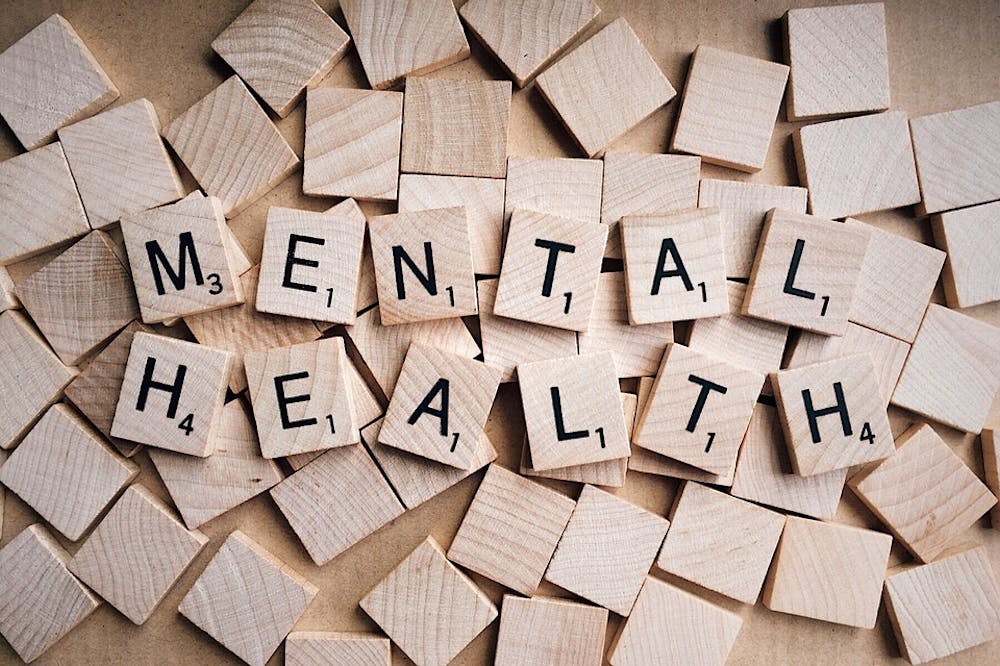How to Become Your Own Mental Health Advocate
As each cold winter day begins to blend into the next, diminishing your mood and energy, it’s important to recognize that the “winter blues” could be affecting you more than you think.
In addition to the stress and anxiety classes can place on students, the winter months can be a source for seasonal affective disorder, or SAD, a type of depression that correlates to seasons, according to Mayo Clinic.
Those who experience SAD report having low energy, a loss of interest in activities that were once enjoyed and feelings of hopelessness. Plus, it’s no secret that weeks of accumulated schoolwork and responsibilities can bring on anxiety. If you’re feeling pushed to the limit and experience depressive thoughts, take action and put yourself first.
Self-care is an incredibly important element to living a healthy, happy life. Be your own advocate and take the time to better yourself using a few of the resources below.
Personal self-care ideas
Self-care is more than taking a bubble bath or smearing a face mask over your skin; it’s bettering yourself through self-initiated actions, and there are countless ways to do so.
Prioritize
When asked why she feels prioritizing is crucial to mental health, Bridgman senior Regina Zebell said, “I think it’s important because without prioritizing yourself, you lose focus.”
Prioritizing during stressful periods in life is crucial to keeping your mental health in check. Putting an emphasis on friends, family, socializing and your own personal wellbeing is key to happiness.
Putting yourself first shouldn’t been seen as selfish, but rather a way to meet our own needs that may have been neglected for quite some time.
Focus on the things you love
Keeping focus on the things that matter most is key to maintaining a healthy state of mind amid feelings of hopelessness. One way to concentrate on the things that matter most is by directing your attention towards the activities that bring you happiness.
“I think it’s important to take the time to do what you love so that you don’t get overwhelmed in life,” Fowlerville freshman Blaney Bell said. “It’s important to focus on what makes you happy. Set aside time for yourself, and make sure you get those things done.”
There are sources of joy in every single one of us, such as working out, writing, music, sports and art. Focus on what brings you happiness, and make it a point to integrate it into your every day routine.
Take care of yourself

Whether it’s physically or mentally, there are countless ways to ensure a healthy lifestyle through positive actions.
“I think a significant way to improve your physical and mental health is to maintain a routine workout schedule,” Midland sophomore Garrett Harnick said when asked about how he maintains physical and mental health. “In addition, you should keep in mind what you consume. You only feel as good as the food you put in your body.”
Personal self-care actions should be centered around you and your individual needs, so take the time to reflect on what you need most in your life.
On-campus resources

Located in Foust Hall, Central Michigan University’s on-campus Counseling Center provides free and confidential counseling services to students at CMU.
“We offer several different types of appointments including single session and urgent appointments. For students requiring long term counseling we have a list of counselors and agencies in Mount Pleasant they can choose from,” CMU Counseling Center’s Atefeh Jenrow said. “In addition, we offer a variety of support groups for some of the most common concerns such as stress and anxiety, and grief and loss.”
The CMU Counseling Center also offers support groups for international and transfer students, as well as group sessions dedicated to those who have experienced sexual assault, trauma and intimate partner violence.
No matter what you’re going through, there are people on CMU’s campus who want to help.
“Many of the issues that feel unsurmountable to one student are also faced by many others, and CMU Counseling Center is a place to receive confidential counseling to help navigate these challenges,” Jenrow said.
For more information, the Counseling Center can be reached via email at counsel@cmich.edu or by phone at (989) 774-3381.
Talk to someone

Admitting you’re struggling is the first step to getting better. Whether it’s a family member, friend, professor or trained counselor, talking to someone about what’s going on in your life is a step in the right direction.
“I would encourage any student struggling with mental health challenges to consider reaching out to a counselor when they need to do so,” Jenrow said. “Struggling with our concerns alone can sometimes make things worse. If someone doesn’t want to seek professional help, talking to a friend, family member, or another trusted individual can be helpful.”
In addition, there are numerous hotlines for those who are in need of immediate assistance. According to Please Live, an organization dedicated to providing resources for those struggling with a number of issues, almost all hotlines are available 24 hours a day, seven days a week, confidential and free of charge.
If you’re in need of confidential assistance, please refer to any of the numbers below.
National Domestic Violence Hotline 1-800-799-SAFE
National Suicide Prevention Lifeline 1-800-784-2433
National Sexual Assault Hotline 1-800-656-4673
National Eating Disorders Association 1-800-931-2237
GriefShare (for those experiencing grief or loss) 1-800-395-5755
Substance Abuse and Mental Health Services Administration 1-800-662-4357
Becoming your own advocate is the first step in regaining control of your life. Don’t dismiss prolonged symptoms of anxiety, stress and hopelessness. Take action and seek help. You've got this!





